Ep. 93: Congressman Jim McGovern, US Rep. Massachusetts 2nd -ft. cohost: Scott Soares, former Mass Ag Commish & shellfish leader ||

For episode 93 we welcome US Congressman from the Massachusetts 2nd district, Jim McGovern. Representative McGovern’s district ranges from Worcester to the Pioneer Valley, and includes a good portion of the Connecticut River – the lifeblood for much of the state’s remaining dairy & orchard infrastructure. McGovern’s district also includes the Quabbin Reservoir – the largest inland body of water in the State – which also happens to supply Boston and much of the metro area with crystal clear, world class drinking water.
.
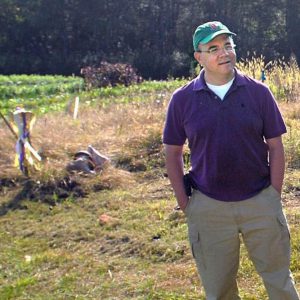
.
In our 45 minute discussion we look at the future of food and its production through a federal lens, as well as for the 1800 farms in his home district in Massachusetts. We discuss both the positive steps forward in the latest version of the farm bill, as well as some of the intrinsic problems of this huge and glacial policy bucket. We look at the discrepancies in supporting big vs. small farms. It was recently announced that US Farm income hit $88 Billion – the highest since 2014. But, nearly 40% of that 2019 farm income income will come from federal aid. Much of that has been tied to disaster assistance, and aid for the current trade war. But, Chapter 12 farm bankruptcies are up 24% over the last year, at their highest levels since 2011. That’s the crux of the issue – big farms are getting paid, and small farms are going out of business. Hear how this can change!
Joining in as cohost is Scott Soares. Soares is former commissioner of Agriculture in Massachusetts, and served as the Director of USDA Rural Development for Connecticut, Massachusetts and Rhode Island for the Obama administration. Scott has 15 years of fishery and aquaculture experience prior to that – including early in his career serving as the 1st Massachusetts coordinator of aquaculture for nearly a decade. Soares has recently returned to these roots by taking on the role of the Mass Shellfish Initiative coordinator.
It become evident quickly that Soares and Congressman McGovern are good friends. We keep the conversation lively and upbeat, while still evaluating important subject matter.
.
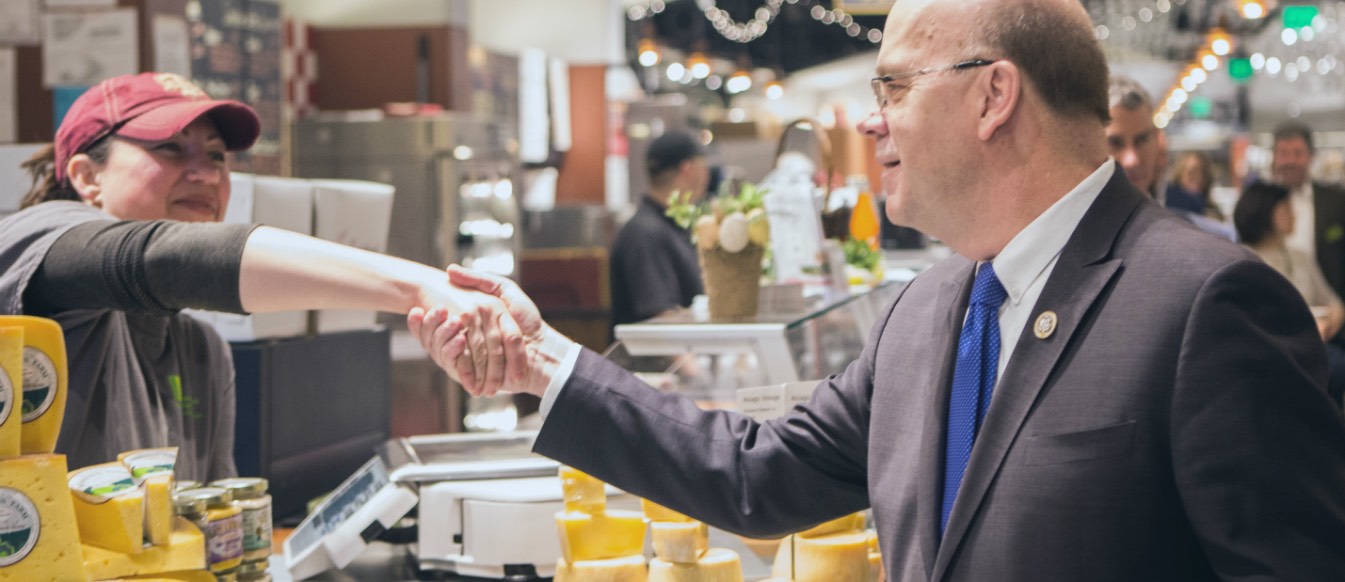
.
So, if you want to hear how systems thinking connects food, health and stability. Or, if you want to know more about how farm raised fish in land based RAS systems could regulated and propagated by the USDA. Or, if you want to learn more about the perils of New England dairy, and what can be done about it. Or, how hemp is an agricultural product for medication, fiber and material sciences to replace plastics – tune-in to learn more about what’s going on in Massachusetts’s 2nd, and on the Hill.
.
@RepMcGovern
co-host:
Scott Soares
- Former Commissioner MA Agriculture
- Dir. USDA Rural Dev Northeast for Obama administration
- 15 years of fishery & Aquaculture experience
- Served as 1st MA coordinator of aquaculture for a decade
@SjSoares65


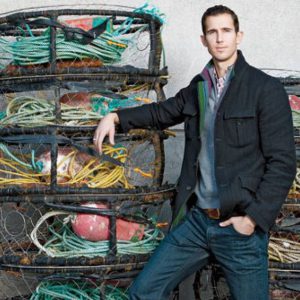 In 2008 Bamboo Sushi became the world’s first Marine Stewardship Council-certified sustainable sushi restaurant. Since, under Kristofor’s leadership Bamboo sushi has been promoting responsible fisheries and sustainable management practice for the betterment of the environment and his patrons. TuneIn to our 40 minute discussion to learn what’s happening to our seas, and to our seafood. To understand how we can take a lead role in determining the health and stability of our oceans through the food choices we make. And to hear how this entrepreneur is building a sustainable business model focused on benefiting diverse stakeholders ranging from his fisherman, processors, employees, investors and consumers.
In 2008 Bamboo Sushi became the world’s first Marine Stewardship Council-certified sustainable sushi restaurant. Since, under Kristofor’s leadership Bamboo sushi has been promoting responsible fisheries and sustainable management practice for the betterment of the environment and his patrons. TuneIn to our 40 minute discussion to learn what’s happening to our seas, and to our seafood. To understand how we can take a lead role in determining the health and stability of our oceans through the food choices we make. And to hear how this entrepreneur is building a sustainable business model focused on benefiting diverse stakeholders ranging from his fisherman, processors, employees, investors and consumers.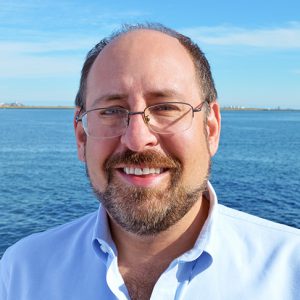 Stavis is also a leading importer into the Florida seafood market specializing in fresh seafood from Central & South America. Stavis Seafoods recently launched seafood line ‘SeaTru’ that comes in tow with the tagline of “high-quality seafood that is completely traceable, socially responsible, and sustainably sourced.”
Stavis is also a leading importer into the Florida seafood market specializing in fresh seafood from Central & South America. Stavis Seafoods recently launched seafood line ‘SeaTru’ that comes in tow with the tagline of “high-quality seafood that is completely traceable, socially responsible, and sustainably sourced.”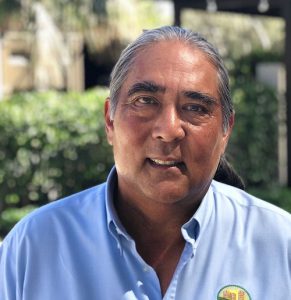 A.G. Kawamura is third generation fruit and vegetable grower and shipper from Orange County. He is the former Secretary of the California Department of Food and Agriculture (2003-2010). As a progressive urban farmer, A.G. has a lifetime of experience working within the shrinking rural and urban boundaries of Southern California. Through his company, Orange County Produce, LLC, he is engaged in building an exciting, interactive 21st century 100 acre agricultural showcase at the Orange County Great Park in Irvine, CA.
A.G. Kawamura is third generation fruit and vegetable grower and shipper from Orange County. He is the former Secretary of the California Department of Food and Agriculture (2003-2010). As a progressive urban farmer, A.G. has a lifetime of experience working within the shrinking rural and urban boundaries of Southern California. Through his company, Orange County Produce, LLC, he is engaged in building an exciting, interactive 21st century 100 acre agricultural showcase at the Orange County Great Park in Irvine, CA.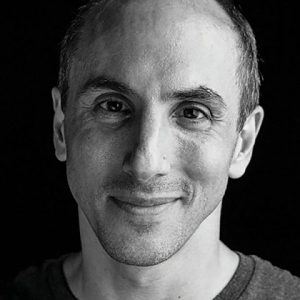 After working alongside some of the world’s best chefs at Square One, Le Cirque, and La Bernadin – Michael Leviton returned to his hometown of Newton, Massachusetts in 1999 to open Lumière. In Lumière’s first two years in business, the restaurant was recognized as one of the Best New Restaurants in America by Bon Appétit, and Michael was named a Best New Chef by Food & Wine. In 2011, Leviton opened Area Four, a wood-burning oven/bar and attached coffeehouse/bakery. Modern and minimalistic in both menu and design, each property earned local and national recognition for serving highest quality product, sourced locally and all scratch made, at a price point and in a setting that is accessible to all.
After working alongside some of the world’s best chefs at Square One, Le Cirque, and La Bernadin – Michael Leviton returned to his hometown of Newton, Massachusetts in 1999 to open Lumière. In Lumière’s first two years in business, the restaurant was recognized as one of the Best New Restaurants in America by Bon Appétit, and Michael was named a Best New Chef by Food & Wine. In 2011, Leviton opened Area Four, a wood-burning oven/bar and attached coffeehouse/bakery. Modern and minimalistic in both menu and design, each property earned local and national recognition for serving highest quality product, sourced locally and all scratch made, at a price point and in a setting that is accessible to all.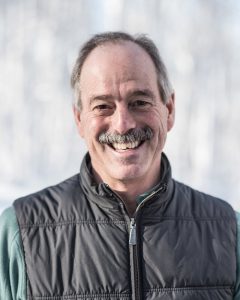 They’re surely good eating, but oysters represent so much good to their surrounds, the shared environments, and the communities they support. You see, each adult oyster filters 50 gallons of water daily, they restore keystone marine ecosystems, and they build protective reefs around susceptible coastal communities – protecting us from storm surge and severe weather events. In this 45 minute discussion Bill Mook goes into details describing why Oysters are so important to the stability of seas, and to our planet. As you’ll hear, Mook has implemented bleeding-edge R&D in his hatchery that is second to none. Innovations include development of methods for overwintering seed out of the water; a tidal powered nursery system; a vessel and gear for mechanizing the use of OysterGro™ cages; and a unique, energy efficient, and highly productive system for growing the micro-algae we use for food in the hatchery. Effectively his approach to “brew” feed for Oysters, or for other animals for that matter, sets to be revolutionary.
They’re surely good eating, but oysters represent so much good to their surrounds, the shared environments, and the communities they support. You see, each adult oyster filters 50 gallons of water daily, they restore keystone marine ecosystems, and they build protective reefs around susceptible coastal communities – protecting us from storm surge and severe weather events. In this 45 minute discussion Bill Mook goes into details describing why Oysters are so important to the stability of seas, and to our planet. As you’ll hear, Mook has implemented bleeding-edge R&D in his hatchery that is second to none. Innovations include development of methods for overwintering seed out of the water; a tidal powered nursery system; a vessel and gear for mechanizing the use of OysterGro™ cages; and a unique, energy efficient, and highly productive system for growing the micro-algae we use for food in the hatchery. Effectively his approach to “brew” feed for Oysters, or for other animals for that matter, sets to be revolutionary.